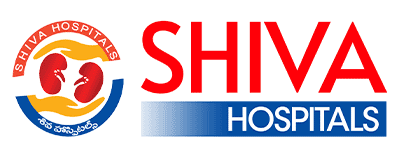Neurology
Neurology is the branch of medicine that focuses on the diagnosis, treatment, and management of disorders affecting the nervous system, which includes the brain, spinal cord, and peripheral nerves. Neurologists specialize in understanding complex neurological conditions such as stroke, epilepsy, migraines, multiple sclerosis, Parkinson's disease, and neurodegenerative disorders. Best Neurologist in Guntur utilize a variety of diagnostic tools, including imaging techniques like MRI and CT scans, as well as electroencephalography (EEG) to assess brain activity. Neurology also intersects with various subspecialties, including pediatric neurology, neuromuscular medicine, and vascular neurology, addressing specific age groups and conditions. Through collaborative approaches, neurologists often work with other healthcare professionals to provide comprehensive care tailored to individual patient needs.
Most commonly seen neurological disorders at Best Neurology Hospital in Guntur :

- Alzheimer's Disease
- Parkinson's Disease: Characterized by tremors, rigidity, and bradykinesia due to dopamine-producing neuron loss.
- Multiple Sclerosis (MS): An autoimmune disorder affecting the central nervous system, leading to fatigue, mobility issues, and cognitive dysfunction.
- Epilepsy: A chronic condition marked by recurrent seizures due to abnormal brain activity.
- Migraine: A common primary headache involving intense episodic pain, often accompanied by nausea and sensitivity to light.
- Brain stroke treatment in Guntur : Caused by disrupted blood flow to the brain, leading to potential paralysis, speech difficulties, and cognitive impairments.
- Cerebral Palsy: A group of disorders affecting movement and posture due to brain injury during development.
- Huntington's Disease: A genetic disorder causing progressive motor dysfunction and cognitive decline.
- Transient Ischemic Attack (TIA): Often called a "mini-stroke," indicating temporary disruption in blood flow to the brain.
Consulting a Neurology doctor in Guntur is crucial when you experience symptoms indicating potential neurological issues. These may include persistent or severe headaches, especially if accompanied by vision changes or nausea; frequent dizziness or balance problems; unexplained changes in memory or cognition; or sudden weakness or numbness in the limbs. Other signs include seizures, tremors, difficulty speaking or understanding language, and coordination problems. If you have a family history of neurological disorders, such as multiple sclerosis or Parkinson's disease, seeking a neurologist's advice can be proactive. Additionally, if you've experienced a stroke or transient ischemic attack (TIA), follow-up care with a neurologist at Shiva Hospitals is essential. Lastly, if you're experiencing unexplained fatigue or sleep disturbances accompanied by neurological symptoms, it’s wise to consult a specialist. Timely intervention can lead to better outcomes and appropriate management of any underlying conditions affecting your neurological health.
Neurosurgery
Neurosurgery is a specialized branch of medicine that focuses on the diagnosis, treatment, and rehabilitation of disorders affecting the nervous system, which includes the brain, spinal cord, and peripheral nerves. Neurosurgeon in Guntur are trained to perform complex surgical procedures that address conditions such as brain tumors, traumatic brain injuries, spinal disorders, vascular malformations, and epilepsy. This field also encompasses minimally invasive techniques, functional neurosurgery, and interventional procedures aimed at alleviating pain or restoring neuro-function. In addition to surgical interventions, neurosurgeons at Best Neurosurgery hospital in Guntur often work collaboratively with other healthcare professionals to provide comprehensive care, including pre-operative assessments and post-operative rehabilitation. As technology and research advance, neurosurgery continues to evolve, integrating innovations like robotic surgery, neuroimaging, and sophisticated diagnostic tools to enhance patient outcomes.
Common disorders treated by Best brain surgeon in Guntur :
- Brain Tumors: Abnormal growths in the brain tissue, which can be benign or malignant. Common types include gliomas and meningiomas.
- Traumatic Brain Injury (TBI): Damage to the brain resulting from external forces, often requiring surgical intervention to alleviate pressure from swelling or bleeding.
- Aneurysms: Bulging blood vessels in the brain that can rupture, leading to bleeding; surgical options include clipping or coiling to prevent rupture.
- Epilepsy: Recurrent seizures due to abnormal brain activity; surgical options may include temporal lobectomy or responsive neurostimulation for intractable cases.
- Hydrocephalus: Accumulation of cerebrospinal fluid in the brain's ventricles, often treated with shunt systems to drain excess fluid.
- Spinal Disorders: Conditions such as herniated discs, spinal stenosis, and tumors affecting the spinal cord and nerves, often treated through decompression or spinal fusion surgeries at Shiva Hospitals .
- Movement Disorders: Conditions like Parkinson’s disease may require deep brain stimulation surgery to alleviate symptoms.
- Craniosynostosis: Premature fusion of skull bones in infants requires surgical intervention by Neurosurgery specialist in Guntur to reshape the skull and allow for normal brain development.

